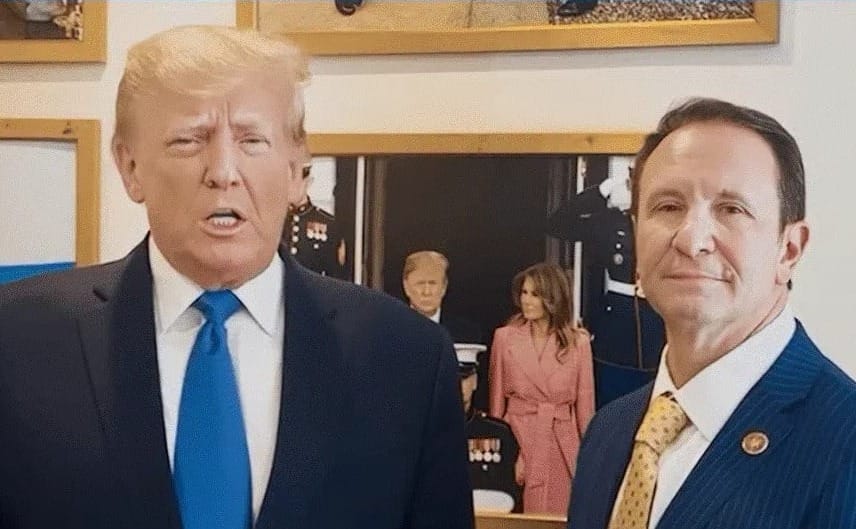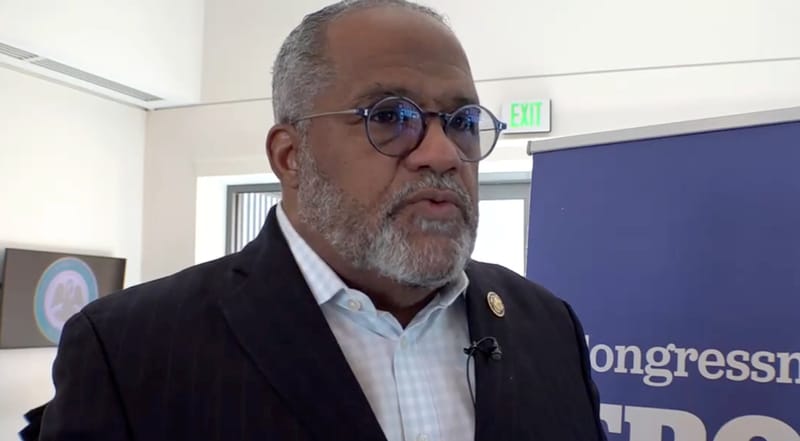Tariffs Threaten Louisiana’s Economy as Governor Landry Downplays Immediate Risks
Despite the clear risks, Landry appeared largely unfazed during a speech at the Chamber-PAC luncheon in Madisonville.
BATON ROUGE, La. — As new federal tariffs threaten to disrupt Louisiana’s trade-reliant economy, state officials are raising alarms—while Gov. Jeff Landry appears more focused on defending the policy than addressing the looming consequences for Louisiana businesses and workers.
Trump’s newly enacted tariffs, including a 25% increase on imported metals set to begin at midnight, are part of a broader push for so-called “reciprocal” trade. The move has already sparked concerns from farmers, exporters, and economic analysts, who warn that Louisiana—heavily dependent on international trade, ports, and energy—will lose significantly.
Agriculture Commissioner Mike Strain offered a sober assessment of the damage already taking shape. “We’re going to see higher prices across the board,” he said. “From food costs to export declines, the pain will be felt in every region of the state.”
Despite the clear risks, Landry appeared largely unfazed during a speech at the Chamber-PAC luncheon in Madisonville. He admitted he wasn’t sure how the tariffs would affect Louisiana businesses but insisted that “fair trade” was more important than protecting industries vulnerable to retaliation.
“There’s going to be a lot of turbulence,” Landry said. “But there’s no such thing as free trade—only fair trade. If another country puts a tariff on our goods, we should match them.”
That line of thinking offers little comfort to Louisiana’s agricultural producers and industrial workers, many of whom depend on open markets and predictable pricing. Economists point out that reciprocal tariffs rarely result in equilibrium and more often lead to trade wars that destabilize local economies.
With five of the nation’s top ports and billions of dollars in exports flowing through its infrastructure, Louisiana is uniquely exposed to global shifts in trade. Strain warned that every crop and commodity could be affected differently, but none will be immune.
“These decisions aren’t happening in a vacuum,” Strain said. “They’re happening in real time, and families will feel the consequences when they shop for groceries, pay their bills, or try to keep their farms afloat.”
Even industries not directly tied to agriculture or metals could be hit. Rising input costs and uncertainty in global supply chains are likely to cascade throughout Louisiana’s economy.
While Landry frames the tariffs as a long-overdue correction to bad trade deals, critics say he is ignoring the very real—and immediate—threat to Louisiana jobs, exports, and family incomes.
“We don’t have the luxury of political theory,” said one Baton Rouge port official who asked not to be named. “We have to deal with what’s actually happening—and what’s happening is bad for business.”
As the tariffs begin to take effect, the state faces a critical test of leadership. For now, those most at risk are left waiting—without a clear plan from the governor’s office to protect the industries that keep Louisiana’s economy alive.







